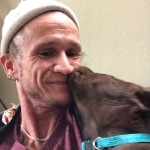Therapists in Grand Junction , CO and Nearby Locations
Find a therapist in Grand Junction, Colorado that meets your needs. Browse our comprehensive list of affordable and licensed therapists in Grand Junction, to find a professional specializing in counseling people with stress, anxiety, depression, relationship issues, grief, and more.
We may receive fees from the providers listed below. See our full disclaimer.
Mental Health in Grand Junction, Colorado
Grand Junction, located in the high desert along the western Colorado River, is the largest city in Mesa County. Affectionately called “Junctown” and “The Western Slope”, Grand Junction is a world-class mountain biker destination. Riders in the western states travel from as far as California to ride a multitude of single-track trail systems. Mountain climbers also find much to love about the Grand Junction area.
The beauty and amenities of Grand Junction place the city on many of America’s top-ten lists for hunting and fishing, favorable small-business development, and other unique attractions. Tourists visit Grand Junction for its excellent skiing. Powderhorn Mountain Resort is a well-known destination among popular ski resorts.
Additional Mental Health Providers Are Needed
Although Grand Junction excels in many areas, mental health issues remain a major concern. Residents have a tough streak of independence and self-reliance. There is a strong stigma attached to seeking help. Many Westerners view the need for mental health treatment as a character weakness.
The National Alliance of Mental Illness reports that over 200,000 residents in Colorado live with untreated severe mental illness that can sometimes lead to desperation. Unfortunately, those who commit suicide often do not seek treatment. Individuals with suicidal depression who do seek help often go to primary care doctors instead of mental health professionals.
The lack of healthcare professionals is a significant problem in rural areas. Mentally ill individuals travel to Grand Junction for help, but there are not enough licensed providers in the city to prescribe psychiatric medication. The availability of psychological counseling and therapy is also inadequate.
Grand Junction Population Demographics
Grand Junction’s population is 62,475. The city has shown significant growth between each ten-year census interval. The city’s economic strength predicts that the population growth will continue throughout the coming decade.
White residents in Grand Junction account for 92.6% of the population. Of that number, almost 11% are Hispanic or Latino. Those who identify as Mixed or Other represent 4.3%, followed by Black at 1.1%, Asian at 1.1%, Native American at 0.7%, and Pacific Islander at 0.3%.
Education levels show that 9.26% of residents attended some High School while 25.16% achieved High School graduation. 24.08% attended some college, and 8.62% completed an associate degree. Those who received a Bachelors Degree or higher represent 32.88%. Education level correlated with earning power. Those with the highest levels of education earned more than twice the amount of those who did not complete High School.
When comparing Grand Junction citizens who achieved graduate or post-graduate college education, females outnumbered males by 7%. When comparing their earnings, however, females earned 20% less income than males.
Barriers to Mental Health Services in Grand Junction
The overall poverty rate for Grand Junction is 18.29%, exceeding the Colorado State poverty rate of 11%.
The overall divorce rate is 14.6% while those who are separated account for 1.8%. Native Americans represented over 58% of the overall divorce rate while Hispanics / Latinos represented the lowest divorce rate at 8.5%.
Grand Junction is less safe than 95% of the cities in the United States, with one of the worst crime statistics in the country. Citizens who live in Grand Junction’s chance of becoming a victim of property crime is 1 out of every 22 citizens, and the chance of being a victim of violent crime is 1 in every 173 citizens.
Poverty and crime correlate with low access levels to mental health providers. The high divorce rate causes broken families; better availability of marital and family counselors could prevent broken families. Significant barriers to mental health services in Grand Junction include:
- Low mental health provider ratios
- High rate of poverty
- Stigma of seeking help for mental illness
- Fear of deportation by non-citizens
- Lack of insurance
- High rate of divorce
- Extremely high crime rate
- Arvada
- Aurora
- Boulder
- Brighton
- Broomfield
- Castle Rock
- Centennial
- Colorado Springs
- Commerce City
- Denver
- Englewood
- Fort Collins
- Greeley
- Highlands Ranch
- Lakewood
- Littleton
- Longmont
- Loveland
- Parker
- Pueblo























